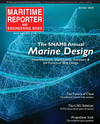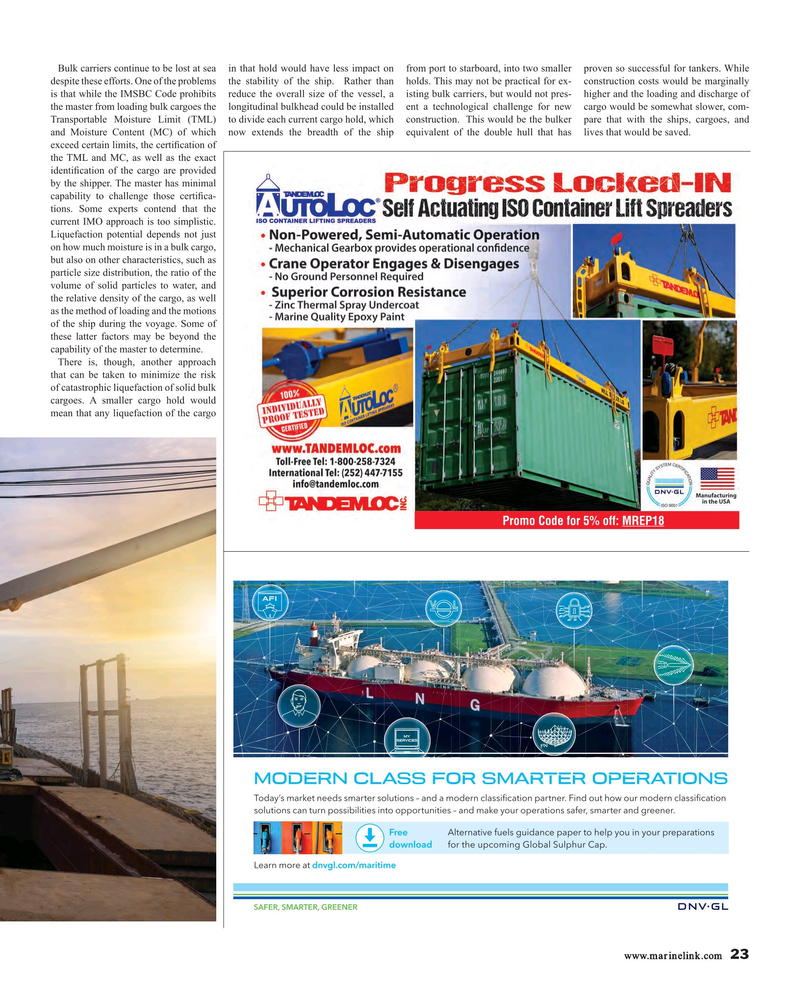
Page 23: of Maritime Reporter Magazine (October 2018)
Marine Design Annual
Read this page in Pdf, Flash or Html5 edition of October 2018 Maritime Reporter Magazine
Bulk carriers continue to be lost at sea in that hold would have less impact on from port to starboard, into two smaller proven so successful for tankers. While despite these efforts. One of the problems the stability of the ship. Rather than holds. This may not be practical for ex- construction costs would be marginally is that while the IMSBC Code prohibits reduce the overall size of the vessel, a isting bulk carriers, but would not pres- higher and the loading and discharge of the master from loading bulk cargoes the longitudinal bulkhead could be installed ent a technological challenge for new cargo would be somewhat slower, com-
Transportable Moisture Limit (TML) to divide each current cargo hold, which construction. This would be the bulker pare that with the ships, cargoes, and and Moisture Content (MC) of which now extends the breadth of the ship equivalent of the double hull that has lives that would be saved.
exceed certain limits, the certi? cation of the TML and MC, as well as the exact identi? cation of the cargo are provided by the shipper. The master has minimal capability to challenge those certi? ca- tions. Some experts contend that the current IMO approach is too simplistic.
Liquefaction potential depends not just on how much moisture is in a bulk cargo, but also on other characteristics, such as particle size distribution, the ratio of the volume of solid particles to water, and the relative density of the cargo, as well as the method of loading and the motions of the ship during the voyage. Some of these latter factors may be beyond the capability of the master to determine.
There is, though, another approach that can be taken to minimize the risk of catastrophic liquefaction of solid bulk cargoes. A smaller cargo hold would mean that any liquefaction of the cargo
Promo Code for 5% off: MREP18
Tandemloc MR Jan18.indd 1 12/13/2017 3:33:46 PM
MODERN CLASS FOR SMARTER OPERATIONS
Today’s market needs smarter solutions – and a modern classi?cation partner. Find out how our modern classi?cation solutions can turn possibilities into opportunities – and make your operations safer, smarter and greener.
Alternative fuels guidance paper to help you in your preparations
Free for the upcoming Global Sulphur Cap.
download
Learn more at dnvgl.com/maritime www.marinelink.com 23
MR #10 (18-25).indd 23 MR #10 (18-25).indd 23 10/4/2018 9:06:05 AM10/4/2018 9:06:05 AM

 22
22

 24
24
